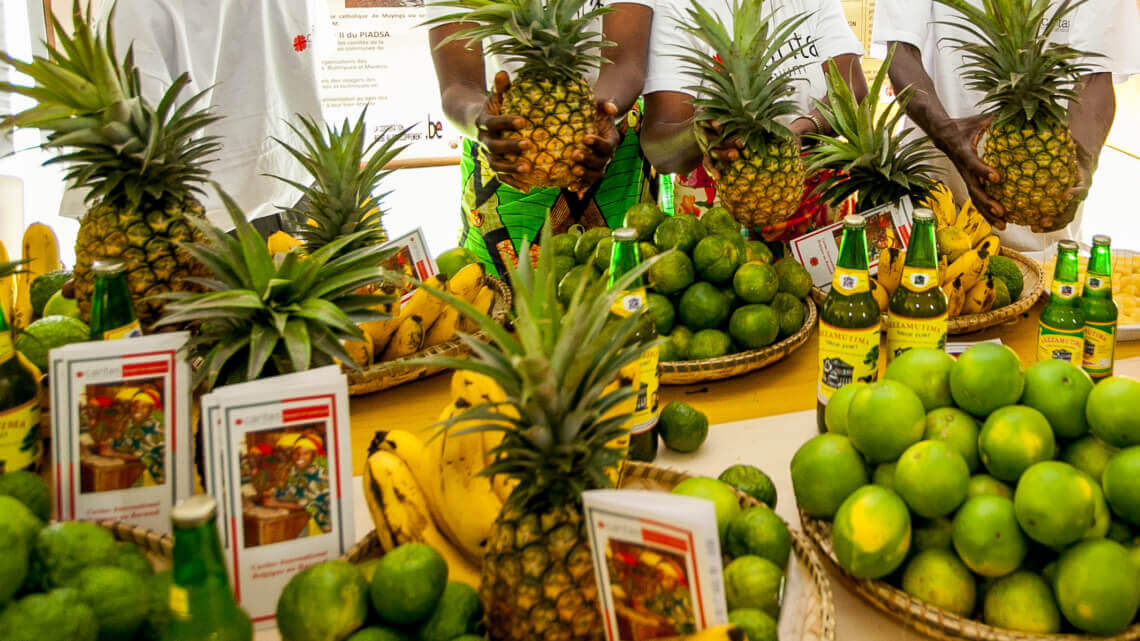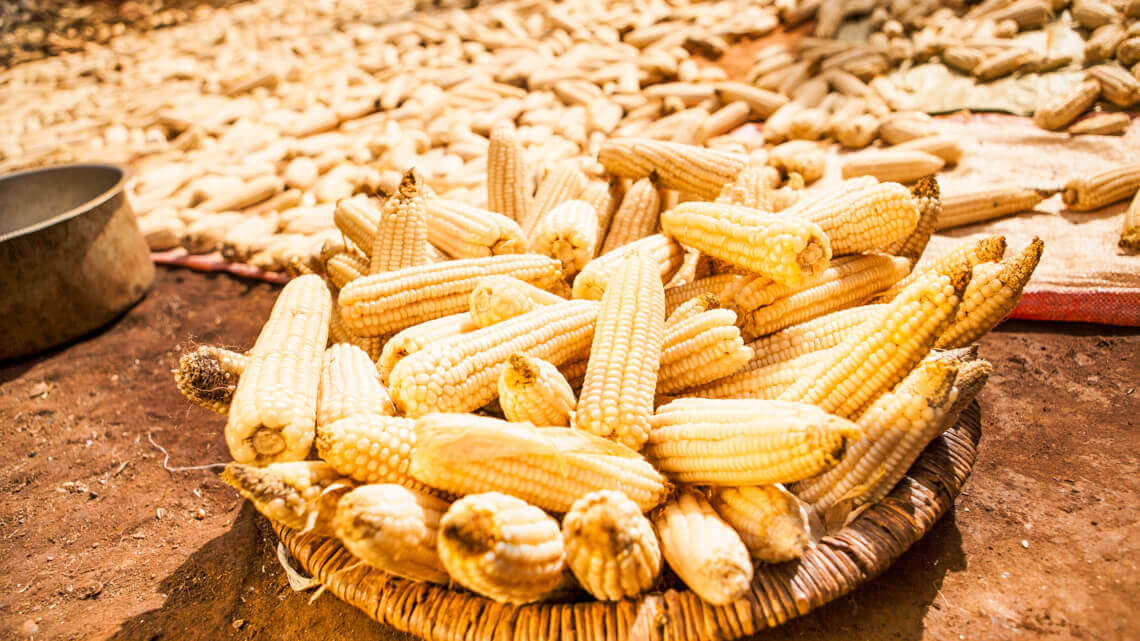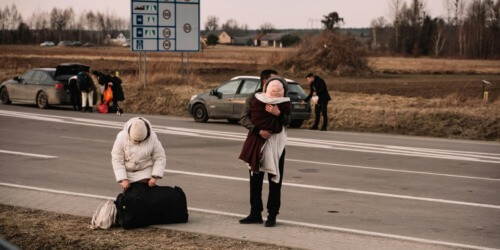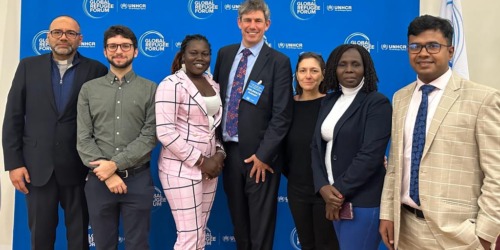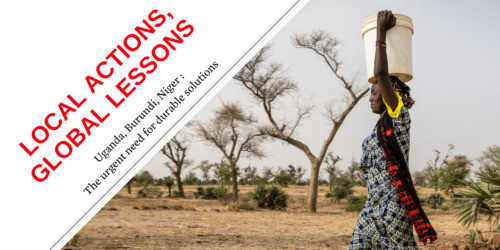Objective #ZeroHunger2030
According to the last report of the FAO (Food and Agriculture Organization of the United Nations) on the state of global food security and nutrition, in 2016, 815 million people in the world were malnourished. This indicates that 38 million more people were malnourished in 2016 than in 2015! Importantly, we cannot hope for a better outcome in 2017 due to the two food crises in South Sudan and Yemen.
Hunger touches those who are the most defenseless and vulnerable: 60% of women living in rural areas are malnourished, 155 million children younger than 5 years old experience stunted growth due to malnutrition. Lastly, of the 815 million malnourished individuals, 489 million live in conflict zones and 56% of these populations depend on farming.
Today, these numbers make the objective #ZeroHunger2030 – Objective of Sustainable Development – more and more unattainable!
Importantes Budget Cuts for the Foreign Aid service of Belgian Development
Our current global crises – climate change, refugee influxes, food insecurity – demand the full advantage of international solidarity and nothing less. However, the foreign aid service of Belgian international development is a victim of significant budget cuts. The commitment in the law concerning foreign aid to reach 0.7% of GNP for developmental aid has been out of reach for many years. Despite a rebound in development aid in 2016 (from 0.42% to 0.49% of GNP) the numbers are already plummeting back in 2017. In addition, this increase in 2016 is mostly due to an increase in expenses for the reception of refugees in Belgium and emergency humanitarian aid. Though these interventions carry important significance, they do not contribute to the structural development of partner countries of Belgian foreign aid.
The Fight Against Hunger and Humanitarian Aid
Regarding the fight against hunger, the Minister confirmed the commitment to delegate 15 % of the budget to foreign aid for farming and food security. We are happy about this engagement. We ask that a follow-up mechanism be put in place to ensure that this commitment is respected in the future and to verify the coherence of interventions regarding the objectives of the fight against hunger. We have already known a significant decrease in the expenditures spent by the DGD for structural development in the sectors of agriculture, forestry, and fishing (2015: 127.4 million, 2016: 96.8 million). In 2016, one third of the expenditures in the sector concerned emergency food aid. We would like to repeat and underscore the importance of this aid; however, it does not offer solutions concerning the structural causes of food insecurity.
In addition, humanitarian aid is completely excluded from the new Agriculture and Food Security Strategic Note. There is also a specific strategic note concerning humanitarian aid; therefore, we advocate for mutually reinforcing and coherent strategies. This implies that the resources invested for this type of aid are not included in the 15% expected for agriculture and food security.
Reorienting Ourselves Back to Sustainable Food Systems
In collaboration with our commitments to the Paris Agreement and the Sustainable Development Objectives, it is imperative to reorient our interventions back to sustainable food systems, that increase collections, reinforce the natural base of production, and improve the resilience of vulnerable populations all at the same time. According to FAO, we urgently need a transition towards more holistic approaches like agro-ecology, agro-forestry, permaculture, and etc.
Concerning the “Climate Smart Agriculture”, we support the general principles, but we ask that public budgets not be allocated to support technological responses because the principles are often commercially oriented and provided by transnational agribusiness companies.
A Commercial and Economic Approach
A rights-based approached, and moreover, the realization of the right to food must remain at the heart of our development policies as announced in the Minister’s General Policy Note.
As a result, the commercial and economic approach of the agricultural sector promoted in the new Strategic Note on Agriculture and Food Security should always respect this frame of reference. The growing role of the private sector in international development offers opportunities to reinforce food security, but care and follow-up are necessary to achieve clear results, particularly in concentration countries of Belgian international development that are fragile.
The Vital Need for a Monitoring Framework
A monitoring framework for the implementation of the Strategic Note for Agriculture and Food Security is essential. However, this framework does not exist today. This framework should integrate monitoring tools to guarantee and respect human rights and the recommendations of the Global Committee of Food Security (CFS). The CFS is the main international body for monitoring and coordinating food security policy around the world. Proposed by FAO, Principles for Responsible Investment in Agriculture and Food Systems (PRAI), can also equally help track the social, economic, and environmental impact of stakeholders’ private sector investment in the agricultural sector in developing countries.
Parliament, we ask you to...
In light of the points mentioned above, we are asking Parliament members to pay close attention to the following points when the Minister of Foreign Aid presents his policy memo and his budget for 2018 to Parliament:
- An additional decrease of the international development budget is completely unjustifiable in light of growing needs. Notably, we are thinking about the growing number of people suffering from hunger. We recall that the goal of 0.7% is a commitment outlined in the 2013 law concerning international development.
- The draft budget must reflect the commitment of 15% for the agriculture sector and food security. We ask that a regular follow-up mechanism be put in place to verify that this commitment is respected. Emergency humanitarian aid deserves its own budget, which cannot be counted in the support for agriculture and food security.
- The draft budget must provide sufficient means for Belgium to fully play its political role, a very helpful role in the past within the FAO and the Committee on Global Food Security (CFS). In this regard, a reinforcement of the administration must be programmed so that it can effectively play its role by monitoring implemented policies through bilateral, multilateral, or indirect instruments. In addition, there is the need to ensure a coherent follow-up of the development policies.
- The expected means for the research and innovation must be oriented towards environmentally friendly agricultural practices and enhanced food security.
- Parliament must demand the establishment of the framework needed to monitor and evaluate the new Strategic Note, agriculture, and food security using binding criteria that adheres to existing international frameworks, including the recommendations of the Committee for Global Food Security.
The members of the Coalition against Hunger are : 11.11.11, ADG, AEFJN, Broederlijk Delen, Caritas International, CNCD-11.11.11, Croix Rouge de Belgique, Collectif Stratégies Alimentaires, Défi Belgique Afrique, Entraide et Fraternité, FIAN – FoodFirst Information and Action Network, Iles de Paix, Le Monde selon les femmes, Louvain Coopération, OXFAM Solidarité/Solidariteit, Oxfam Magasin du Monde, Oxfam Wereld Winkels / Fair Trade, SOS Faim, TRIAS, ULB-Coopération, Vétérinaires Sans Frontières, Vredeseilanden









